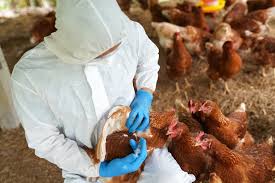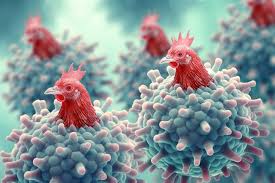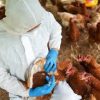Human Cases of Bird Flu Climb in US
Four homestead laborers, who work at a similar poultry ranch, were contaminated with bird influenza on Monday, expanding the all out number of cases to eight, as per authorities Communities for Infectious prevention and Counteraction in the US.
The cases come, all the while, with a troubling flare-up of the infection among dairy cattle, which has likewise brought about human contaminations.

A fifth case is likewise thought however should in any case be examined to be affirmed.
The gamble for the American populace is still “low,” the CDC said. The contaminated laborers detailed confronting conjunctivitis and “influenza like side effects.”
A scourge of bird influenza was distinguished in the spring in the US, with an uncommon contort: the sickness, which previously struck essentially poultry and birds, was currently being tracked down in cows.
The main human contamination by means of a cow was declared on April 1, in the territory of Texas.
Two different cases were then announced in Michigan, and toward the beginning of July, one more case was tracked down in Colorado.
That western US state is currently seeing the illness spread among both animals and poultry.
Specialists are worried about the developing number of well evolved creatures contaminated with the illness, however human cases are as yet uncommon.
They dread that high course could make it simpler for a transformation of the infection to foster that would permit it to pass starting with one human then onto the next.
The CDC reestablished its call for precautionary measures for laborers in touch with tainted cows or poultry.

Understanding the Rising Concern:
As the world continues to battle the ongoing COVID-19 pandemic, another health threat is on the rise – bird flu. With a recent surge in human cases, experts are closely monitoring the situation and urging the public to take precautions. In this article, we will delve into the details of bird flu, the current situation, and what steps can be taken to protect ourselves and our loved ones.
What is Bird Flu?
Bird flu, also known as avian influenza, is a viral infection that primarily affects birds. However, certain strains of the virus can infect humans and other animals. The most common type of bird flu virus that infects humans is the H5N1 strain. It is spread through contact with infected birds or their droppings, as well as through contaminated surfaces.
The Rising Concern: Human Cases on the Climb:
In recent weeks, there has been a significant increase in the number of human cases of bird flu reported worldwide. This has raised concerns among health authorities and the general public. While the virus does not spread easily from person to person, the risk of a global outbreak remains a possibility.
Symptoms and Complications of Bird Flu:
The symptoms of bird flu in humans are similar to those of common flu, including fever, cough, sore throat, muscle aches, and fatigue. In severe cases, the virus can lead to pneumonia, respiratory failure, and even death. It is important to seek medical attention if you experience any of these symptoms, especially if you have had contact with sick birds.

Protecting Yourself and Others:
To reduce the risk of contracting bird flu, it is essential to take preventive measures. These include:
- Avoiding contact with sick birds or their droppings
- Cooking poultry and eggs thoroughly before consuming
- Practicing good hand hygiene, such as washing hands frequently with soap and water
- Wearing protective gear, such as masks and gloves, when handling sick birds
Conclusion:
In conclusion, the recent surge in human cases of bird flu is a cause for concern and requires vigilance from both health authorities and the public. By understanding the risks associated with the virus and taking appropriate precautions, we can protect ourselves and prevent its spread. Stay informed, stay safe, and stay healthy.
Remember, prevention is better than cure when it comes to bird flu. Stay informed, stay safe, and take the necessary precautions to protect yourself and your loved ones from this potentially deadly virus. Let’s work together to stop the spread of bird flu and ensure the health and well-being of all.













